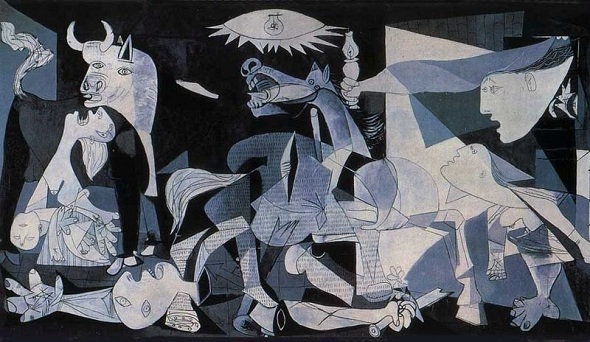Spanish Civil War Definition World History
The Spanish Civil War started in July 1936. It was between the leftist Republicans, who were in government at the time, and the Nationalists. The right wing Nationalists were led by the army and had the support of the Catholic Church, monarchists and large landowners.
There were a number of issues that directly led to the outbreak of the Spanish Civil War. The greatest of these was the long period of decline that Spain had suffered since the days of the Spanish Empire. By 1930 Spain had lost all of her empire and was lagging behind the rest of Europe industrially. The monarchy was overthrown and the Second Empire formed in 1930. This government proved to be completely inept at carrying out reforms and maintaining law and order.
Divisions continued to widen between the towns and the countryside and the wealthy landowners and peasants. Many areas of the country wanted to have their own government and wanted independence from the rest of Spain. The Church was one of the most powerful forces in the country and it was strongly opposed to social reform therefore it was vehemently opposed to the Republican government. The army had always had a history of meddling in the country's politics. The senior commanders were constantly worried about the amount of influence that Communists had in the government and were concerned that there might eventually be a Communist takeover. Violence had always been an inherent part of all attempts at democratic elections. Quite often the genuine results were altered due to intimidation and other tactics. Spain was quite literally ready to explode and the final spark that lit the fuse of war was the assassination of the right wing leader, Calvo Sotelo, in July 1936.
The war itself was extremely horrific. There was a considerable amount of interference from other countries mainly because the war was a fight between the left and right factions. The fascist governments of Germany and Italy gave their support to the Nationalists under General Franco. Up until the outbreak of the war Franco had amassed his troops in Morocco. They were unable to cross back into Spain until Hitler and Mussolini provided airlifts. This began the forward push of Franco and ultimately led to his success. Although the USSR gave its support to the Republican government there was no other official aid from other countries. However, a number of International Brigades and foreign volunteers did join forces with the Republicans.
The Spanish Civil War has often been seen as a prelude to the Second World War. Indeed there were a lot of tactics that were adopted that became widespread during WWII. For example, it was the first war where air power played a significant part and this included bombing of towns and other civilian targets. Armored vehicles were used in formation to drive the enemy back. Propaganda was also widely used against the Republican supporters which broke a lot of their resolve.

One of the main reasons General Franco and the Nationalists were victorious after three years of war was that the army was on their side. The Republicans did manage to train their own troops and they had become a good fighting force by the end of the conflict but it was not enough against the professional soldiers. There were some soldiers who defected from the army and went to fight for the Republicans but they were often suspected of being spies for the Nationalists and their expertise was not made use of. General Franco had taken all of the various Nationalist groups and unified them into a far stronger force than the Republicans. He also had far more support from other countries than the Nationalists did. Germany and Italy provided troops and equipment throughout the war.
After the war ended Spain suffered under the 40 years of Franco's rule. They were diplomatically isolated from other countries and the country itself was in turmoil. There had been a huge loss of life and damage to the infrastructure. Franco was in complete control and the government revolved around him. Censorship was introduced and the regionalism that had been brewing before the war was completely outlawed. Industrially Spain suffered extensively too. It had been struggling before the war and now it fell even further behind its European neighbours. The majority of the damage that the war had caused could not be repaired as there simply wasn't the money. The country had very little money because the Republicans had sent all of the gold reserves to the USSR for safe-keeping and now Germany wanted reparations for the help that it gave Franco that enabled him to seize power. Democracy would not return to Spain for more than four decades.
Spanish Civil War Definition World History
Source: https://www.spanish-fiestas.com/history/civil-war/